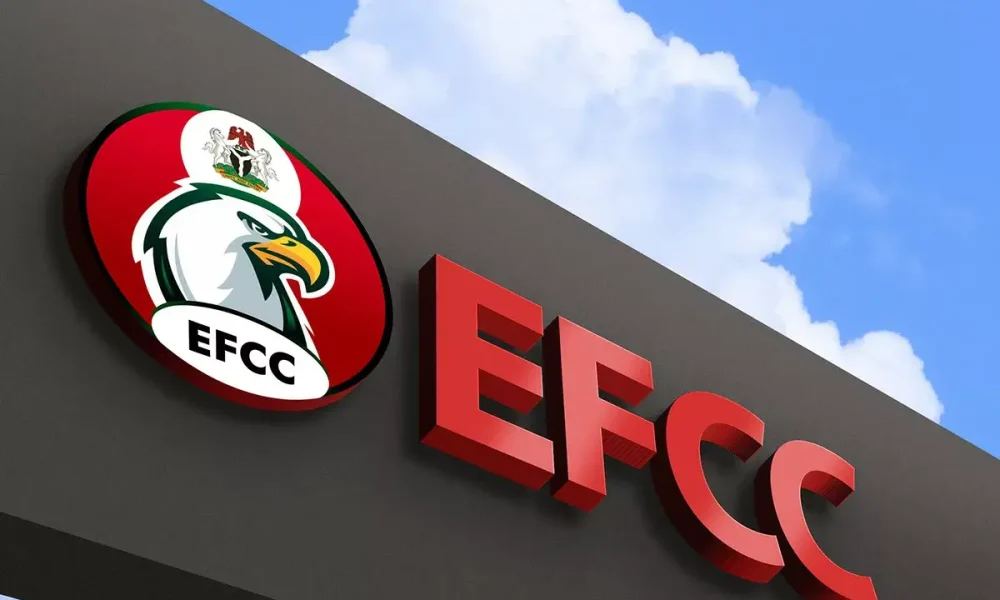A Federal High Court in Abuja has approved the Economic and Financial Crimes Commission (EFCC) to freeze 24 bank accounts held in various financial institutions due to allegations related to terrorism financing.
Henzodaily reports that Justice Emeka Nwite issued the ruling after EFCC’s attorney, Martha Babatunde, presented an ex-parte motion.
The court authorized the commission to freeze the accounts for a period of 90 days while investigations are ongoing.
The ex-parte motion, designated as FHC/ABJ/CS/1897/V/2024, was submitted by Ekele Iheanacho, SAN.
Iheanacho requested an order to freeze the specified bank accounts, which are owned by Lawrence Lucky Eromosele, who is currently under investigation for involvement in kidnapping until the investigation is concluded.
He indicated that the accounts in question are under scrutiny by the EFCC concerning allegations of money laundering and terrorism financing.
The senior counsel noted that preliminary investigations have indicated a connection between these bank accounts and individuals exploiting virtual cryptocurrency exchange platforms to unlawfully manipulate the value of the naira and launder proceeds from illegal activities.
He emphasized the necessity of safeguarding the funds in the identified accounts until the investigation and any potential prosecution are finalized.
In the affidavit submitted by Mohammed Khalil, an investigator with the Special Investigation Team of the EFCC, which operates under the Office of the National Security Adviser (ONSA), he stated that he was part of the team tasked with examining the case.
He indicated that the National Security Adviser, Nuhu Ribadu, instructed the team to look into a significant threat posed by a syndicate that was endangering the lives of senior NSA operatives by demanding ransom payments.
Upon receiving this directive, the team initiated their investigation by monitoring the activities of these syndicates and requesting relevant banking information.
Khalil identified Lawrence Lucky Eromosele as one of the individuals involved in the criminal activities.
He reported that the operatives had received direct threats concerning their families, with the perpetrators providing specific home addresses, family locations, and detailed movements, along with threats of kidnapping if ransom payments were not made.
He further alleged that an unidentified individual reached out to one of the operatives, demanding a sum of money in exchange for the safety of the operative and their family members.
“Attached and marked as Exhibit EFCC 1 is the printout of the chat between one of the perpetrators and the operative,” he said.
The officer further noted that in a bid to mitigate some of the threats; the team had identified bank accounts linked to the individuals making the threats.
“Attached and marked as Exhibit EFCC 2 are the bank statements of one of the suspects. Further intelligence has revealed that proceeds of crimes and funds for terrorist activities are covertly exchanged through these platforms,” he said.
Khalil stated that the court’s order is essential to freeze the accounts specifically outlined in Schedule 1 of the motion paper, for which an investigation is currently underway.
During the resumed hearing, Babatunde, representing the EFCC, informed the court that the motion was dated and submitted on December 17.
She indicated that the motion sought an order to freeze the bank accounts listed in the attached schedule.
The attorney requested the court to approve the relief sought.
In response to Justice Nwite’s inquiry regarding the duration of the investigation, Babatunde indicated that it would be completed within 90 days.
The judge, having granted the request, adjourned the case until March 24, 2025, for further mention.
